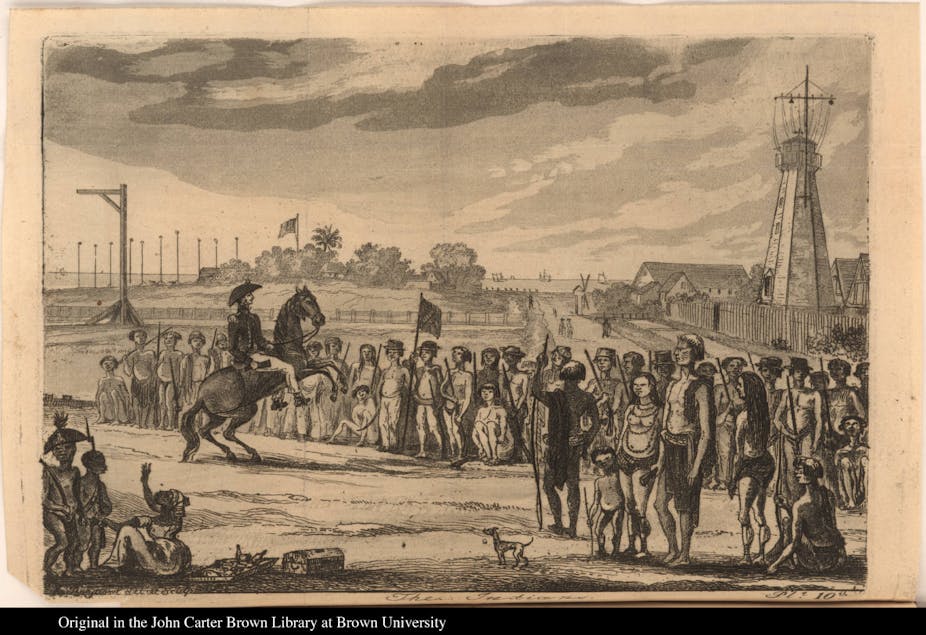Caribbean countries are calling upon former European colonisers to engage them in dialogue for reparation for centuries of slavery and genocide.
Members of Caricom, the organisation of Caribbean Community Countries, met in July to decide on plans to seek reparations which could include legal action against France, Britain and the Netherlands and a claim of up to £200 billion.
Previous claims for slavery reparations have been unsuccessful, but Caricom believes it can mount a credible case and Ralph Gonsalves, the prime minister of St Vincent and the Grenadines, has contacted the British law firm, Leigh Day and Company about the matter.
Leigh Day and Company successfully sued the UK government this year on behalf of former members of the Kenyan Mau Mau resistance movement. Some 5,200 Mau Mau survivors were awarded US$21.5 billion in reparation for torture and other crimes they suffered at the hands of the British colonial authorities during their independence struggle in the 1950s and 1960s.
Previously, slavery claims by both African and Caribbean countries have fallen on deaf ears.
The former Haitian president, Jean Bertrand Aristide, was one of the first to make such an appeal in 2003 when he pursued a claim against Haiti’s former colonial master, France.
Aristide argued that France should repay, with interest, a Fr150m indemnity it had extracted from its colony in the 1825 after Haiti’s long and bloody emancipation struggle. Haiti continued to pay off this debt up until the early 20th century. Aristide argued that this sum was unjust and crippled the Haitian post independence economy. Aristide’s insistence that France repay to Haiti $21,685,135,571.48 was ignored and contributed to the demise of his administration.
An apology from Europe, combined with efforts to repay the damage caused by former colonisers, would certainly be a landmark victory. However, Caribbean leaders remain confident that they can make a strong case. In July 2013 it was unanimously agreed that Caricom, which represents 15 Caribbean member states, should lead the legal struggle.
Moral campaign
Caricom has stressed that legal action will be a last resort and is pursuing a moral campaign spearheaded by members of the Caribbean academic community. Central to this campaign will be Professor Hilary Beckles and Professor Verene Shepherd of the University of the West Indies.
Professor Beckles’s book, Britain’s Black Debt: Reparations for Caribbean Slavery and Native Genocide, is a centrepiece publication for the movement.
The First Regional Conference on Reparation in Kingston, St Vincent in September 2013 engaged many of the region’s prominent academics and political figures. Renowned Jamaican reggae artist, Bunny Wailer, also presented at the conference.

National reparation commissions will be established in each of Caricom’s 15 member states to enlist mass support for the cause. Commissions will operate in solidarity with the Regional Ministerial Committee on Reparations, chaired by the Barbadian prime minister, Frendel Stuart. Plans to erect a memorial honouring victims of European enslavement are also on the drawing board.
Payback time
With regard to the form that reparation should take, no fixed position has yet been ascertained. Verene Shepherd has estimated that £200 billion would be an appropriate starting figure. This would be the modern equivalent of the £20m compensation received by British slave owners following the abolition of slavery in 1834.
This would not take into account the still considerable manifestations of wealth that enslavement generated for Europe. These include endowments to All Souls College, Oxford. It could be argued that Britain’s industrial revolution and the establishment of the Bank of London and Barclays Bank were also achieved through the huge wealth generated by the slave trade.

Similarly, the thriving port cities of La Rochelle and Bordeaux are linked to wealth Haiti was forced to produce for metropolitan France, while the origins of the sophisticated dykes and water systems in Holland can be traced back to wealth accumulated by the slavery business of the Dutch West India Company.
Campaigners are in agreement that reparation should target regional development. In particular, development will focus on transportation, renewable energy programs, education and health.
Whether Caricom’s call for reparation will prove to be a blessing or a curse remains a topic of international discussion. Sceptics warn that at best it will yield a hollow victory. Reparation demands may affect long-term relations and aid relationships between the Caribbean and Europe.
At this point Caricom must concentrate on winning the moral or legal battle for reparations. Relations between Europe and the Caribbean can be negotiated in the future.

